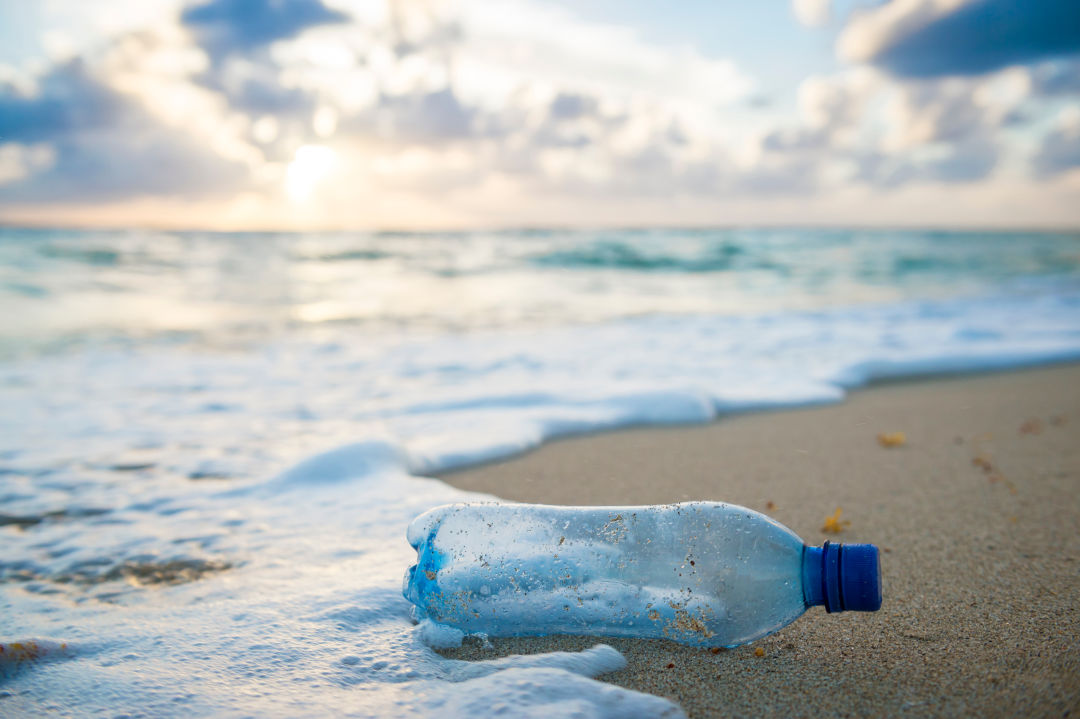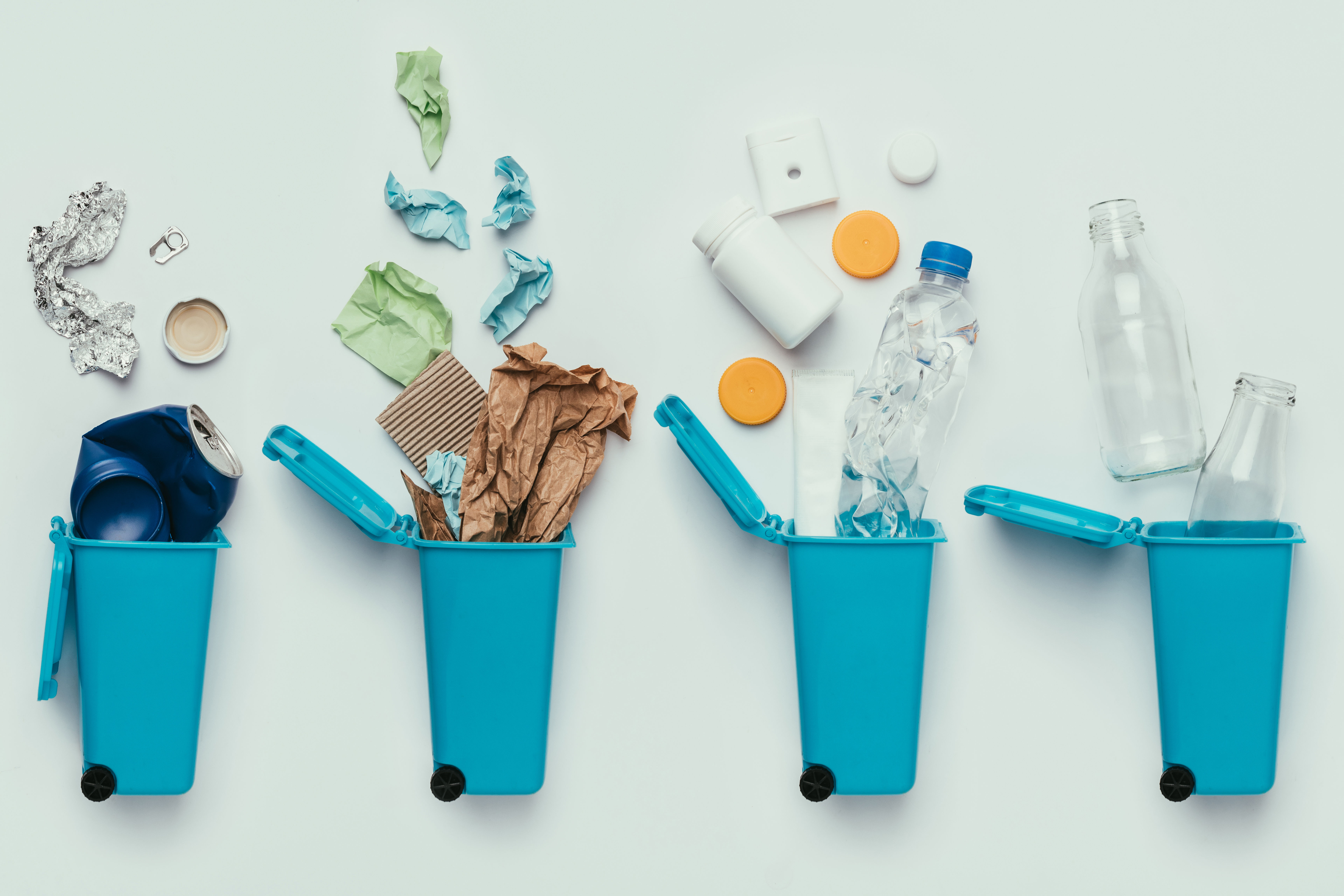How to Reduce Your Use of Single-Use Plastics

Reducing the use of single-use plastics matters for our waterways and overall health.
Image: lazyllama/Shutterstock.com
Single-use plastics are the zombies of the environment. Bags, straws and expanded polystyrene, often called Styrofoam, may break down over years—but they never truly die.
“All the plastic ever made never goes away, it just turns into smaller and smaller pieces,” says Randall Penn, waste reduction agent for University of Florida, Institute of Food and Agricultural Sciences (IFAS) and Sarasota County.
In fact, plastic molecules can remain intact for thousands of years, poisoning marine wildlife and the food chain.
"Straws get caught in turtles' noses, bags are mistaken for jellyfish, and expanded polystyrene breaks down into microplastics that get ingested by animals," says Jeffrey Vredenburg, sustainability coordinator for the City of Sarasota.
Oceana, an international marine environment advocacy and research hub, reviewed nearly 1,800 cases of plastic consumption and entanglement among marine animals nationwide from 2009 to early 2020 and found that manatees and turtles were affected the most. Turtles comprised 48 percent of all cases, while manatees comprised 39 percent. In Florida, almost all of at least 700 manatees that died during that timeframe had swallowed some type of plastic.
And humans are swallowing it, too. “People are consuming more and more plastics every year. Plastic comes from petroleum–you don’t want that in your body,” Vredenburg says. But it’s tough to avoid.
An IFAS report revealed that between 4.8 to 12.7 million metric tons of plastic waste entered the oceans in 2015.
“When we have community cleanups, you'll see single-use plastics everywhere and a lot of plastic films, bags and straws,” Penn says.
And single-use plastics are not recyclable—making reduction crucial.
According to 2021 report from the Florida Department of Environmental Protection, 93 percent of Floridians and 97 percent of local governments indicated that regulating single-use plastics is necessary.
But there’s not always much that local governments can do. In 2008, under Gov. Charlie Crist, Florida became the first state to bar local plastic bag bans. The law prevented local bans on Styrofoam, as well.
Locally, we’re still blocked from banning single-use plastics on private property. But a 2019 City of Sarasota ordinance limits their use in outdoor restaurants or cafes with seating areas on the sidewalk, at special events, city parks, and for city leaseholders like Mote Marine Laboratory & Aquarium and O'Leary's. In such locations, straws have to be available upon request but shouldn’t be provided automatically.
“It’s inside the private establishment that we have no jurisdiction,” Vredenburg says.
Still, some businesses choose to make a concerted effort to reduce their impact on the environment by participating in the Sarasota County Green Business Partnership, a program in which Penn educates businesses on how to implement better environmental practices.
Here’s what they both had to say about individuals who want to do the same. A lot of it comes down to just being conscious, says Vredenburg.
Reuse
"Carry a reusable cup, silverware, straw and bags, and store them in your car or purse so you don’t forget them. If you do forget them, or you say ‘yes’ to the grocery plastic bag, use them again to get as much life out of them as possible," Penn says.
Refill
Carry a reusable water bottle instead of buying plastic bottles. “The reason people often buy bottled water is they don’t like the taste of their tap water. Invest in a filter and get it from your fridge,” Vredenburg suggests. There are also convenient water bottle filling stations throughout City of Sarasota parks and buildings, and “we’re looking at adding more,” he says.
Say 'no' to straws
Ditch the straw when you order a drink.
Clean up
Sign up for cleanups at Keep Sarasota County Beautiful. “Even if you pick up one Styrofoam cup, you're doing your part and making a difference,” says Vredenburg. Get started this weekend and sign up for a Whitaker Bayou cleanup this Saturday with the Sarasota Bay Estuary Program.
Make your event eco-friendly
Make smarter purchases. "When you hold an event, try not to use all that single-use plastic and opt for a compostable product instead," says Penn.
Customize your order
When you order from Uber Eats type places, you can search for sustainable options opt-out of plastic utensils. "Practice opting out if you’re placing a pickup order over the phone, too," says Vredenburg.
Recycle plastic packaging
“A lot of our packaging from Amazon, which includes plastic bubble wrap or plastic strips, is recyclable at plastic bag collection sites that you’ll find at many grocery stores,” says Penn.
These tips are part of the Green Living Toolkit. Over the past year, the region’s sustainability experts at the Science and Environment Council of Southwest Florida have curated dozens of solutions for sustainable living. The Green Living Toolkit is a guide for people in Sarasota and Manatee counties interested in sustainable energy and food, waste recovery, water protection and nature—assembled all in one place.



